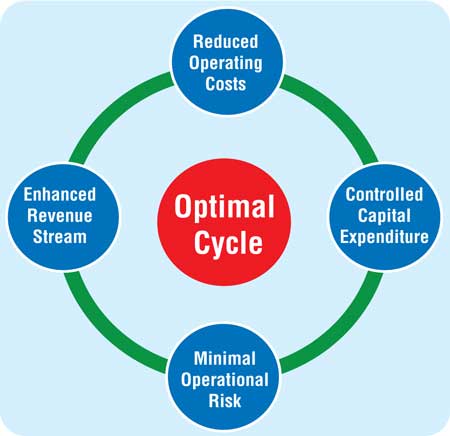Thursday Feb 19, 2026
Thursday Feb 19, 2026
Friday, 8 April 2016 00:00 - - {{hitsCtrl.values.hits}}
By Ms.Gagan Singh
Facilities & Property Management– An Overview
Most real estate developments underway in Colombo are mixed-use developments or integrated developments, such as Shangri-La, Colombo One, Cinnamon Life, Tata’s One Colombo and Colombo City Centre. 4,000 condominium units are expected to be handed over to customers by 2019. JLL anticipates a supply pipeline of 2.6 million sqft of Grade A office space in the Colombo market in the medium term. More than ten retail malls totalling approximately 1.6 million sqft are expected to be operational by 2020.
Facilities Management (FM) focuses on managing real estate for occupiers (owners & lessees) and is defined as making the best use of available facilities, optimising for best business performance; this includes building maintenance, security, human resources, repairs & maintenance and reducing idling facilities. Property Management involves partnering with developers, owners and investors in real estate, including lease and tenancy management and day-to-day property maintenance (engineering, security and cleaning, etc.).
The concept of outsourcing Facilities Management is relatively new in Sri Lanka. Companies have historically adopted an in-house model while “out-tasking” single services, such as cleaning, catering or maintenance to external providers. There are only a handful of Facilities &Property Management companies in the market, of which JLL is the largest Facilities & Property Management service provider in Sri Lanka, with over 55 properties under management.
Benefits in Outsourcing of Facilities & Property Management
Globally, the shift to an outsourced model has benefited firms immensely by way of passing on the risk of service delivery to a Facilities Management company that takes overall responsibility for this function. Most importantly, this leads to a vested relationship between the client and the FM company where in the latter has skin in the game - making investments in the relationship for mutual growth and benefit.
Facilities Management of Corporates is different from Administration. With complexities in operating large infrastructure habitats having grown in recent times, marked differentiation has come in, with Facility Management becoming the umbrella where infrastructure and administration co-exist. Facility management focuses, among employee or resident welfare, travel, transport and other comfort requirements, on building conditions, ageing, equipment condition, operating efficiencies of equipment, deployment of resources, material usage, security, inventory management, power consumption, analytics around the same and so on. This holistic approach has its benefits in the long term for the owner from a life cycle perspective apart from optimising cost of operating the premises with minimal annual increase in costs.
Energy consumption is arguably the largest cost for any operating premises. FM companies have expertise and tried, tested and established formulae to cut down these costs and suggest investments that would have quick returns and savings in the long term, bringing in sustainability credits as well.
Is there an opportunity for a Facilities Management company to tap top local organisations?
The market is shifting towards the adoption of Integrated Facilities Management outsourcing as a strategic operating model as it generates a value in the form of reduced costs, minimised risks and increased end-user satisfaction. Initially spearheaded by Western multinationals more familiar with outsourcing, an increasing number of Sri Lankan companies are exploring the possibility of turning to specialist expertise for such models. Sri Lankan firms understand that outsourcing Facilities Management can assist them in tackling the challenges of operating in Sri Lanka’s changing business landscape while mitigating significant risks and improving the company’s overall image and credibility. However, it is prudent to keep in mind that the outsourcing of all non-core activity to a Facilities & Property Management company will be latent for several reasons. It will invariably cause a threat to their employees who handle Facilities & Property Management, in terms of their job security, and the senior management’s decision and culture will play a key role.
Conclusion
Sri Lanka has a handful of Facilities & Property Management companies and is still at a nascent stage in this field; it is still growing and the awareness level of this profession is low. Relevant companies and the government should take initiatives to conduct workshops, training programmes and conventions to educate the public and potential clients, etc.
As the Sri Lankan economy matures, the current, predominantly in-house model of Facilities & Property Management operations will shift to a more strategic one where the true value of quality and benefits of technology can be extracted. This will bring about the alignment of Facilities Management objectives with those of the wider company/group and the recognition that these services can best be delivered by specialist providers with access to the right skills, infrastructure and industry best practices of more mature markets.
The writer is the Chairperson – Jones Lang LaSalle Sri Lanka